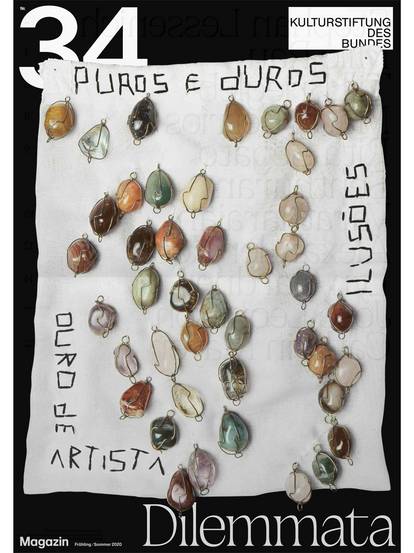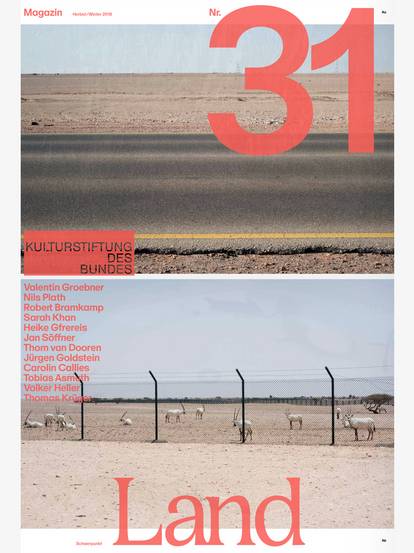Let's fill our pantry! I would put flower bulbs into our storeroom. Kept at a suitably cool temperature, they would hold for a long time. Each bulb is tiny, shrivelled, brown and drab. But each contains tremendous energy. In each bulb slumbers a birth as fresh as creation – and an ever-present promise of death. In a way, these inconspicuous dormant organs are like Leibniz's monads – self-contained flames, yet luminous the world over.
I would choose snowdrop bulbs. Granted, they are a little poisonous. But snowdrops with their bells hanging in the gray air at the end of winter are truly a new beginning. The embodiment of a fresh start. Two years ago I discovered snowdrops growing wild in an abandoned garden plot. I found them amidst the wilted leaves of a scraggy apple tree where garden clippings had been dumped the previous summer. About a dozen blossoming islands had pushed their way through the leaves. It seems the exceptionally hard winter that had ravaged about their heads hadn't bothered them in the least. With perseverance that only the truth is capable of, they had, in the frigid darkness, developed into what they were destined to become.
I made my way through the brush of the abandoned plot to the apple tree without much hope of finding anything. And at first, I didn't. But then, after closer inspection, I discerned the fine blades among the crystals of ice, white buds and finally the first blossoms drooping heavily from thin stalks. The bells hung like tender muscles from their stems, guided by flexible necks, as if they were connected to the earth by an elastic band. Flower chains. The petals, rolled up like interlocked fingers, the cup and stem pushing through a fine skin which would remain behind like the skin of an onion when the flower finally bloomed. Layer by layer, the inevitable spring arrived, peeling away the winter from the light. To defy the frost, cold and dreariness, it seems the highest degree of fragility and tenderness is required.
I remained kneeling in the grace of these snowdrops for quite some time. It was this that saved me, at least for the short time these flowers would be allowed to grow here. The garden plots were all being ploughed flat. A new park was planned. I knelt by the flowers and didn't notice the numbness in my legs. Fine crystalline drops rolled off the petals, reflecting the edges, casting rays of light upon the brightly bending necks of the stems, shimmering in the almost non-existent breeze. The dew drops made each blossom into a crystal chandelier, imperceptibly swinging above the bottomless canyon of a white sky.
Springtime is a period of convalescence, the final stages of an illness which carries with it new life, like the scab of a wound concealing the new, soft skin beneath. If one looked very closely, one would see a spidery web of cracks spanning and crisscrossing the entire landscape, the signs of a new beginning readying itself to burst through the colourless surface. The longer I looked, the more it seemed that the flowers had freed themselves. Perhaps it was happening imperceptibly before my eyes. Like thorns, the tips of the snowdrops penetrated the wet leaves, enshrouded by their decay. Dying is a process of birth in reverse; at the end comes the inconceivable moment of a new beginning arising from nothing.
Every day, sometimes more than once, I returned to the illuminated bed of snowdrops. I wanted to make sure that they were still there. I had the intense feeling that everything was contained in these flowers' tiny gesture. It was the feeling that the thin stems, the green blades of their leaves, the whitest white of their blossoms, their sudden existence one day in March, their inevitable disappearance in the impending maelstrom of spring (buried beneath the budding life) couldn't be made any more perfect and complete. What a celebration life is, what a long, roaring party, as powerful as space and as fragile as gossamer in the wind.
It's this effortless waste of energy that we humans don't understand – this muscle tautened to the point of shredding, comprised of nothing but a wisp of light, yet holding this convergence in its hand. The flowers had arrived. With the patience of all of creation, they had waited a whole year for this moment when they could finally surrender themselves to the light. In Danish, snowdrops are called spring's fools. We should embrace their slim necks and let them hold us above an abyss of grace.
One morning almost all the flowers were gone. Someone had dug them out, bulbs and all. When I got there, when I saw what remained from afar, a thought crossed my mind – up close, these islands of light outshine everything, but from far away, they look rather unremarkable. And then I saw the holes. Wild boars, I thought, the wild boars must have eaten the bulbs. But then I realized that someone had dug them out. Carefully I approached and tried to take comfort in the last remaining blossoms, as if I were warming myself with a match whose flame could extinguish at any moment.

![[Translate to English:] Magazine 38](/fileadmin/_processed_/f/1/csm_Magazin38_Cover-Vorschau_921x1230_689f428dc3.jpg)
![[Translate to English:] Magazine 37](/fileadmin/_processed_/b/c/csm_Mag37_Cover-Vorschau_921x1230_b5129fdb2a.jpg)
![[Translate to English:] Magazine 36](/fileadmin/_processed_/2/a/csm_Cover_Magazin36__issuu_2f3cef97bb.jpg)





![[Translate to English:] Magazine 30](/fileadmin/_processed_/c/b/csm_magazin30_vorschau_9005f773d3.jpg)














